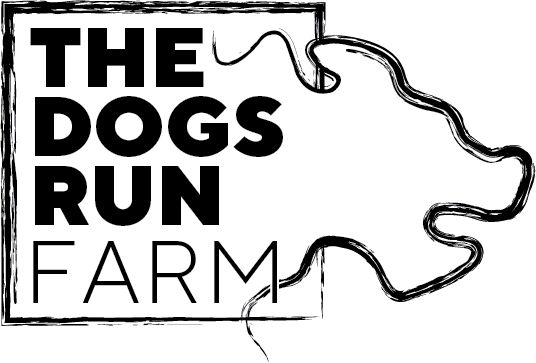FREQUENTLY ASKED QUESTIONS
-
We are located on a little creek, or ‘run’ that from a birds eye view resembles the head of a running dog. Check out our logo to get the idea of the shape, and you can also visit out ‘About the Farm’ page to learn a bit more.
-
We are a busy working farm, so the short answer is that we do not offer drop-in visits, farm tour and the like. The long answer is that we DO offer pre-arranged tours for education groups, but we reserve the right to charge for our time, and schedule these opportunities on a case by case basis. We are also planning an Open Farm Day, which will be an opportunity for customers and visitors to see our farm and get a tour from the farmers.
We appreciate the sincere offers for help on our farm, but the reality that taking the time to train volunteers for a few hours or days of work is not an efficient use of time. We do offer a seasonal apprenticeship program for a more in depth immersion into farming with us.
-
Our pigs and lambs are transported by truck and trailer, typically by Colin, to a smal, family run abattoir and butcher shop in Killarney, MB. The facility is federally inspected, and meets all the criteria for safe and respectful animal handling, and food handling safety. The animals are stunned with an electric volt before being slaughtered to ensure the process is as quick and painless as possible. The carcasses are cut, wrapped and frozen on the premises, and transported back to the farm in our delivery trailer for storage and distribution to ur customers.
Our poultry (chickens and turkeys) are transported to one of two slaughter facilities by crates, and/or trailer. They are hung upside down, which immobilizes and calms poultry, and killed with an electric stunning knife. They scaled, plucked and eviscerated, and packaged and frozen on site, and transported back to the farm in our delivery trailer for storage and distribution to ur customers.
-
Chemicals: We are not grain farmers, so farming with chemicals is for the most part, outside of our purview. We do purchase grain to feed to our monogastric animals (ie. non ruminant animals, pigs, chickens, turkeys who need more than just pasture to live).
Although we mixed our own feed for many years, because our farm has grown, we now purchase feed. We choose a mix of barley, peas, wheat, grain screenings, added minerals, and in the winter, alfalfa pellets. We do not use corn or soy as a main ingredient in our feed.
Antibiotics: We do not use subtherapeutic antibiotics on any of our animals - this means that we don’t medicate any of our feed or water with direct courses of precautionary or preventative antibiotics, or antibiotics used as growth stimulators. We do however, use antibiotics to to treat illness or infection on individual animals in need of medical care under veterinary supervision. If an animal intended for human consumption needs treatment, we always follow the prescribed withdrawal periods (usually doubling or tripling the period) before slaughter.
Hormones: Canadian farmers are not permitted to use hormones in the production of pork, and poultry - so any time you’re seeing ‘horomone-free’ chicken or pork, its a marketing tactic that doesn’t really mean anything. We don’t use any hormones on our sheep, and would not use hormones on beef.
Vaccinations: We follow veterinary recommended protocols for protecting our sheep flock and cattle herd from parasites and disease.

